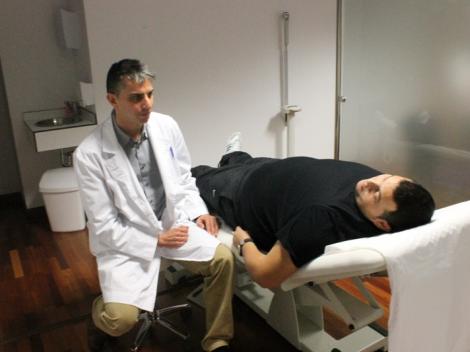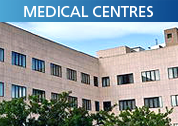
Specialized Centers
HOSPITAL CLÍNICA BENIDORM (HCB)
HOSPITAL CLÍNICO VISTAHERMOSA
Laparoscopic Gastric Bypass or Obesity Surgery
Gastric by-pass surgery is performed to make the stomach smaller. Sometimes part of the intestine is bypassed too. This makes the patient feel fuller more quickly, thus achieving long-lasting weight loss.
Benefits of the operation
Obesity surgery improves patients' quality of life and reduces the diseases associated with obesity, such as type 2 diabetes, sleep apnoea syndrome, hypertension, cardiac function disorders and problems with the musculoskeletal system, among other.
Medical-technical description
Obesity surgery is performed using a minimally invasive surgical technique called laparoscopy, which allows a camera to be inserted into the abdomen through a small incision (usually between 0.5 and 1.5 centimetres).
According to medical criteria and after studying the individual characteristics of each patient, one of the following surgical techniques is used:
- Restrictive technique: this consists of removing at least three quarters of the stomach, reducing its capacity to between 60 and 150 cc.
- Mixed technique: As well as reducing the size of the stomach, part of the intestine is also bypassed to reduce the food and nutrients absorbed.
About the operation
The surgery is performed using laparoscopy and takes between three and five hours.
You will have an anaesthetist who specialises in this type of patient because of obesity and its associated diseases are more difficult to manage. A thorough pre-operative evaluation is always made.
The patient is looked after in the Intensive Care Unit for the first few hours after the operation.
Before the operation
Before undergoing surgery you will be evaluated by a number of specialists. This is because obesity surgery requires multi-disciplinary teams:
Endocrinologist:
- Makes a correct diagnosis and indication for the surgical treatment.
- Evaluates the diseases associated with the obesity.
- Orders the required tests before and after surgery.
A surgeon specialising in gastrectomy and laparoscopy:
- Makes an evaluation, explaining the possible techniques available and the most suitable in your case.
Psychologist:
- Helps with dietary re-education.
- Evaluates the emotional situations that arise before or after surgery.
Nutritionist:
- Helps with dietary re-education.
- After surgery the nutritionist will tell you which foods you should eat for good tolerance and nutrition.
Specialist in Internal Medicine:
- Together with the other specialists, he will monitor and control the entire process.
Post-operative care
- You will be looked after in the Intensive Care Unit for the first few hours after the operation.
- After 24 hours you can start taking a liquid diet, comprising juices, milk and broths. A nutritionist will monitor your diet closely .
- After three to four days you will be released from hospital and can lead a normal life.
- You will be evaluated on an outpatient basis by the different specialists according to a protocol (every month, three months, six months and twelve months).



